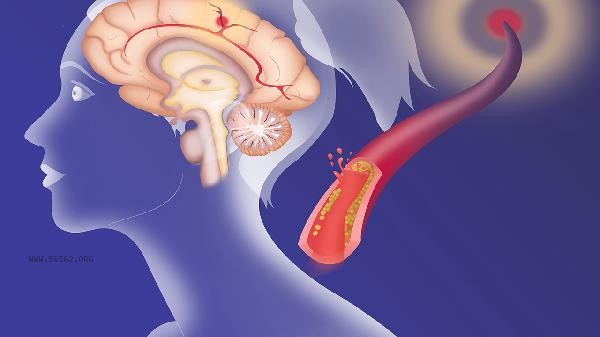The dull and unclear brain can be improved by adjusting daily routines, supplementing nutrition, moderate exercise, psychological regulation, and seeking medical examination. This symptom is usually caused by insufficient sleep, malnutrition, excessive stress, chronic diseases, medication side effects, and other reasons.

1. Adjusting sleep routine
Maintaining a regular sleep routine can help improve brain drowsiness. Go to bed and wake up at a fixed time every day, ensuring sufficient sleep time. Avoid staying up late and spending long days catching up on sleep, and limit your lunch break to within half an hour. Reduce the use of electronic devices before bedtime and create a quiet and dark sleeping environment. Long term irregular sleep patterns may lead to a disruption of the biological clock and exacerbate fatigue.
2. Supplementing nutrition
A balanced diet has a relieving effect on the decline of brain function. Appropriately increase the intake of foods rich in high-quality protein, B vitamins, and unsaturated fatty acids. Deep sea fish, nuts, whole grains and other foods help maintain the health of nerve cells. Avoid high sugar and high-fat diets and maintain adequate hydration. Malnutrition can affect the energy metabolism of brain cells, leading to temporary decline in cognitive function.
3. Moderate exercise
Regular exercise can promote blood circulation in the brain. Engage in aerobic exercise every week, such as brisk walking, swimming, etc., for about half an hour each time. Exercise can stimulate the secretion of brain-derived neurotrophic factors, improve attention and memory. Avoid prolonged sitting and engage in simple stretching activities during work breaks. Lack of exercise can lead to insufficient oxygen supply to the brain, exacerbating symptoms of drowsiness.

4. Psychological regulation
Long term stress may trigger a state of brain fatigue. Relieve anxiety through meditation, deep breathing, and other methods. Cultivate interests and hobbies, shift attention, and maintain good social interaction with family and friends. Learn time management skills to avoid overexertion. Continuous psychological stress can lead to an increase in cortisol levels, affecting normal brain function.
5. Medical examination
Stubborn drowsiness may indicate potential health problems. Anemia, thyroid dysfunction, chronic fatigue syndrome, and other diseases may all manifest as a decline in brain function. Some anti allergic drugs, antihypertensive drugs, and other medications have side effects. It is recommended to undergo medical examinations such as blood routine and hormone levels to rule out the possibility of organic diseases. Improving brain dullness requires a comprehensive lifestyle adjustment. In addition to the above methods, cognitive training games can be tried to stimulate brain activity and avoid bad habits such as smoking and drinking. Maintain good ventilation indoors and a suitable working environment with adequate lighting. If the symptoms persist for more than two weeks without improvement, or are accompanied by symptoms such as headache and dizziness, it is necessary to seek medical attention promptly at the neurology department. Daily attention to balancing work and rest, avoiding excessive use of the brain, and gradually establishing a healthy lifestyle rhythm can help restore a clear state of the brain.









Comments (0)
Leave a Comment
No comments yet
Be the first to share your thoughts!